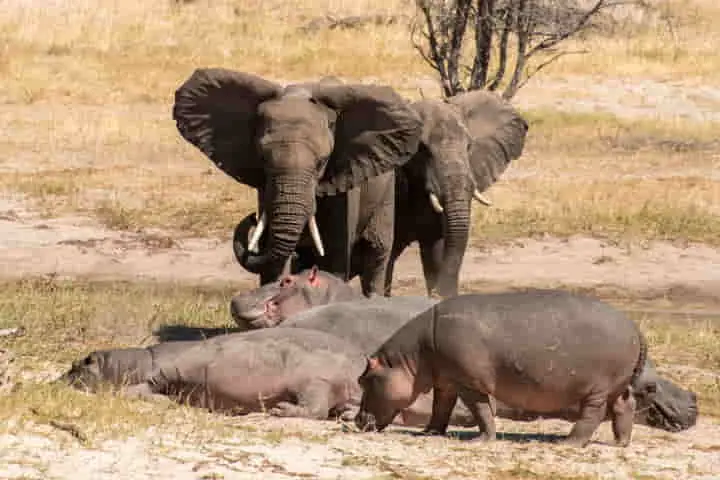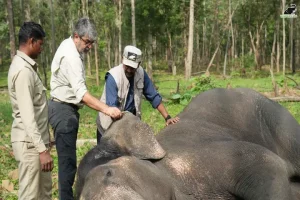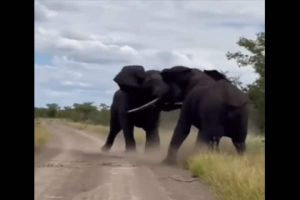A recently conducted research has revealed that the presence of older male elephants makes the other males less aggressive as per a report in scitechdaily.com.
Conducted by the University of Exeter, the study suggests that the elimination of older males, who are often targeted for trophy hunting, may escalate conflict between human and wildlife.
The University did the research in collaboration with Elephants for Africa – a charity committed to protecting the endangered African elephant through research and education – and studied 281 male elephants in an all-male area in Botswana’s Makgadikgadi Pans National Park. The study was done for a period of three years.
The animals examined were divided into four age groups. These were adolescents (10-15 and 16-20 years), and adults (21-25 and 26+ years).
Also read: In Africa many elephants are now born without tusks in nature's revolt against poaching
The findings of the research suggested that when there were fewer old bull elephants present, the creatures were more prone to be belligerent towards targets like livestock, other species and vehicles, all of which are classified as non-elephant targets.
The behaviour of the adolescent elephants in particular was found to be more hostile and shocking to non-elephant targets when they were alone as compared to other males. This conduct points out that adolescents who are isolated socially may pose increased peril to people.
The study’s lead author Connie Allen of Exeter’s Centre for Research in Animal Behaviour talking about the research said: “Our research draws attention to what is often a rather overlooked area in animal behaviour; that of the complex relationships and connections that occur between males in non-breeding all-male societies.”
Allen went on to add: “It appears the presence of more knowledgeable, older elephants in groups may play a key role in keeping the younger, less experienced males calm and lowering their perception of their current threat level, which means there’s less risk of aggression towards humans and other species. Alternatively, older bulls may police other males' aggression directed toward non-elephant targets.”
Stressing on an important aspect of human-elephant conflict, Professor Darren Croft, of the University of Exeter, said comprehending and understanding the reasons for aggression in male elephants is necessary for reducing these conflicts.
Also read: World Elephant Day: Kenya’s sanctuary raises orphaned baby elephants & returns them to the wild
Croft observed: “Old male bull elephants are often thought of as redundant and are targeted for trophy hunting. These new results highlight the important role that old male elephants can play in shaping the behaviour of younger males, which are more aggressive in the absence of old bulls — including towards vehicles. These findings provide an important message for wildlife managers and suggest that the removal of old male elephants from populations could lead to an increase in human-wildlife conflict.”
Throwing light on the research, Lauren Brent, Associate Professor at the University of Exeter remarked: “Elephants are highly social animals. This study clearly shows how wildlife management can be informed by how elephants interact and react to each other. Future research on social behaviour will continue to enhance conservation efforts of this iconic species.”




















